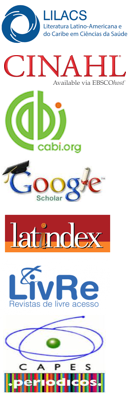Influence of Concentration and Type of Sugar Additives on the Osmolality and Acceptance of Coconut Water
DOI:
https://doi.org/10.17921/2447-8938.2011v13n1p%25pResumo
Diet formulations and health drinks with low osmolality has been used to enteral nutrition and electrolytes reposition and coconut water have a great potential to it. To other hand, the use of sugars, besides increase osmolality, is advantageous to industries to permit obtain a product with sweet taste standardized. In order to evaluate the effect of types of sugars on coconut water osmolality an experiment was laid out in a completely randomized 3x4 factorial design with three types of sugars (glucose, fructose and sucrose) and four concentrations of sugar (0 g.kg-1, 5 g.kg-1, 10 g.kg-1 and 15 g.kg-1). It was verified that tested concentration and types of sugars affects significantly (p < 0.05) the coconut water osmolality. However, at the tested levels the product is still less hypertonic than a great number of existent beverages, remaining as an alternative as refreshing and re-hydration beverage. Fructose, among tested sugars, is the one which promotes less impact on osmolality and its addition in increasing levels improved the acceptability, being a good alternative to standardize the sweet taste on industrial process.
Downloads
Downloads
Publicado
Como Citar
Edição
Seção
Licença
Os autores devem ceder expressamente os direitos autorais à Kroton Educacional, sendo que a cessão passa a valer a partir da submissão do artigo, ou trabalho em forma similar, ao sistema eletrônico de publicações institucionais. A revista se reserva o direito de efetuar, nos originais, alterações de ordem normativa, ortográfica e gramatical, com vistas a manter o padrão culto da língua, respeitando, porém, o estilo dos autores. As provas finais serão enviadas aos autores. Os trabalhos publicados passam a ser propriedade da Kroton Educacional, ficando sua reimpressão total ou parcial, sujeita à autorização expressa da direção da Kroton Educacional. O conteúdo relatado e as opiniões emitidas pelos autores dos artigos são de sua exclusiva responsabilidade.


